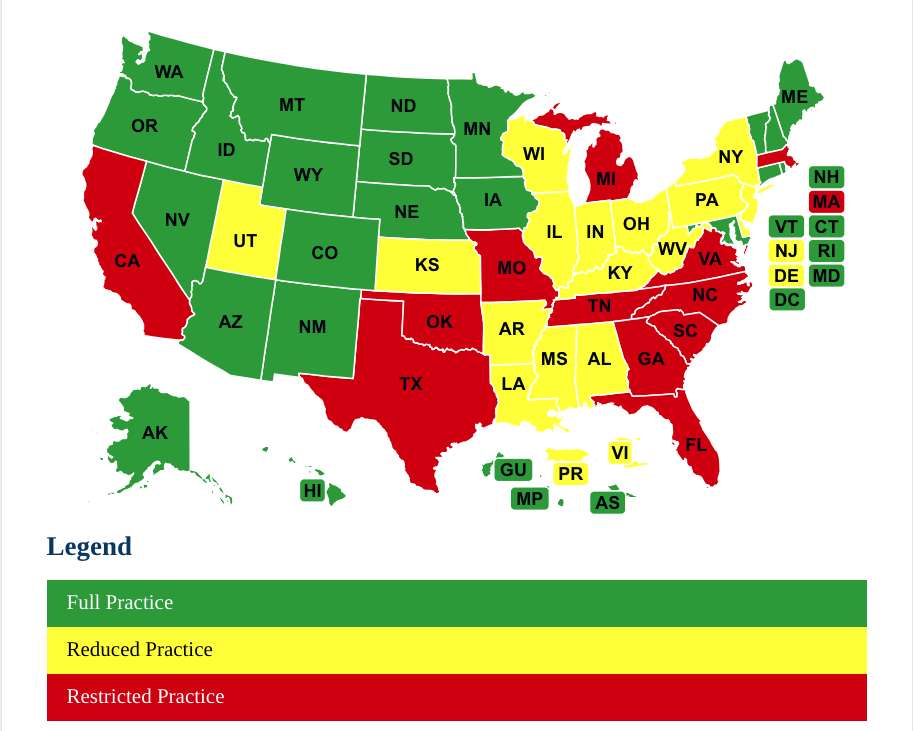Did you know this week is National Nurses Week? Here is some background from the American Association of Nurse Anesthetists:
In 1993, the American Nurses Association declared May 6-12 as the national week to celebrate and elevate the nursing profession.
National Nurses Week is a time for everyone – individuals, employers, other health care professionals, community leaders, and nurses – to recognize the vast contributions and positive impact of America’s 4 million registered nurses. Each year, the celebration ends on May 12, Florence Nightingale’s birthday.
Speaking of nurses, did you know legislators have filed bills in both houses of the General Assembly that would significantly increase the freedom of North Carolina advanced practice registered nurses? In a research update from earlier in the year, I looked at how the SAVE Act would modernize nursing regulations:
The SAVE Act would accomplish two goals. The first deals with the authority of the Board of Nursing to regulate these professions. Under current law, both the NC Medical Board and the NC Board of Nursing regulate nurse practitioners and certified nurse midwives. The proposed bill would give the Board of Nursing sole authority over the practice of these two professions. The NC Board of Nursing already supervises clinical nurse specialists and certified registered nurse anesthetists exclusively. Additionally, this bill seeks to codify the services that both clinical nurse specialists and certified registered nurse anesthetists already perform and grant each with an APRN title. Certified registered nurse anesthetists and clinical nurse specialists scope of practice will remain the same meaning they won’t be performing any new services because of the change in the law.
The second goal is to remove the requirement that nurse practitioners and certified nurse midwives have a collaborative practice agreement to treat patients. North Carolina is one of 12 states that restrict the practice authority of nurse practitioners and certified nurse midwives unless they obtain a collaborative practice agreement with a supervising physician.
Here is a map to show the practice authority nurse practitioners have by state:

Amending the laws to remove unnecessary barriers would not only grant nurses additional flexibility to do their jobs, but it would also greatly benefit the state:
An extensive study conducted by Chris Conover of Duke University examined the local and statewide economic benefits that would result from granting APRNs full practice authority. The study estimated that potential annual health cost savings would range from $433 million to $4.3 billion. In addition to cost savings, the study projected that granting full practice authority would increase jobs in the state, increase the amount of tax revenue collected by the state, and address a large portion of the regional physician shortages North Carolina faces.
Access to health care for rural populations is a critical issue. Not only are physicians scarce in rural areas they can also be maldistributed across regions. According to the NC Department of Health and Human Services, 82 of North Carolina counties are designated as a health professional shortage area for primary care. As Dr. Conover found in his study, more flexibility for APRNs could mitigate some of the shortages in rural areas on North Carolina.
Nurses are integral parts of the healthcare sector and lawmakers should grant these highly qualified professionals full practice authority to treat patients without unnecessary government barriers.


